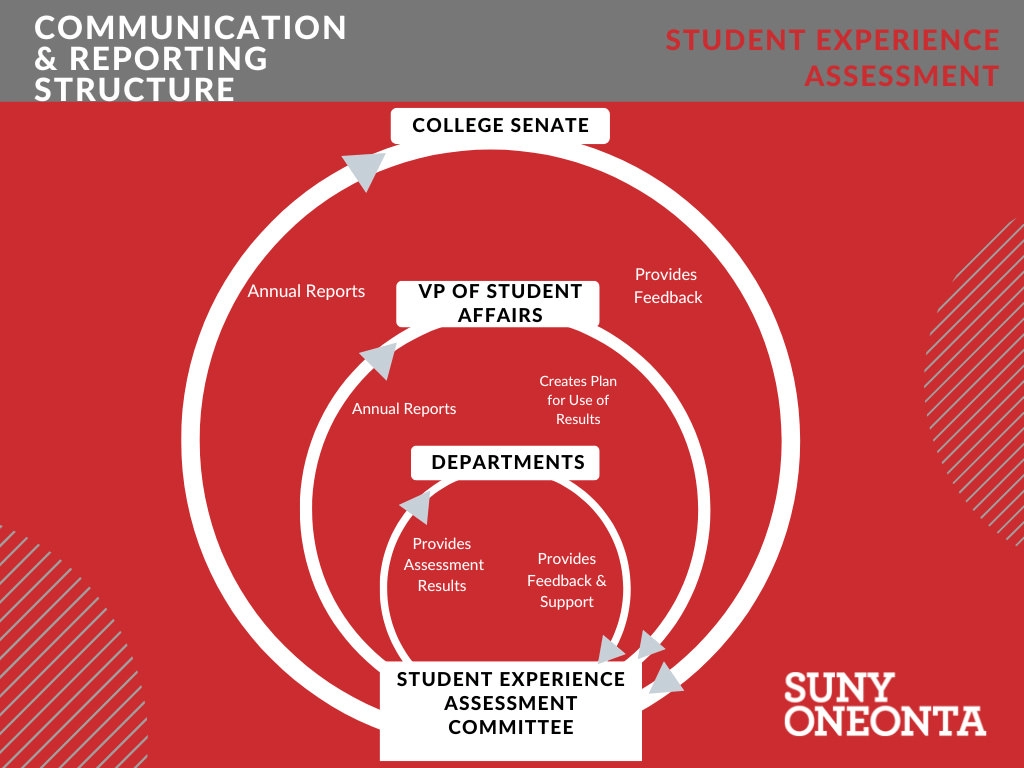As part of the University Assessment Advisory Council, the Student Experience Assessment Committee serves in an advisory capacity to the President’s Cabinet, university governance, faculty and staff by collaborating with areas across the institution to enrich the quality and effectiveness of institutional assessment practices related to the broader Student Experience. This committee also serves the critical function of synthesizing assessment reports, making connections to the Student Experience Domains, and providing recommendations on strategic initiatives based on the assessment findings.
Student Experience Domains
LEADERSHIP - a process of social influence, which maximizes the efforts of a group of people toward the achievement of a common goal.
Through divisional/departmental programs and initiatives, students will:
- develop self-awareness of leadership traits/skills/abilities, communication skills, collaborative skills, and the ability to understand risk-taking and risk-management;
- understand the role of change in an organization and the importance of independence and interdependence in group settings.
INTERCULTURAL APPRECIATION - the ability to describe and demonstrate the value of both your own and other cultures, and to recognize and respond to differences and commonalities in the classroom, in student groups and organizations, in the residence halls and in our communities.
Through programs, events, and conversations, students will be able to:
- identify and appreciate the contributions of others;
- acknowledge and respect diverse ideas and viewpoints;
- appreciate the diversity in our communities- religion, race, ethnicity, sexual orientation
- find and embrace value in others’ experiences and cultures.
HEALTHY BEHAVIOR – A series of thoughts and actions that maintain, attain, or regain the physical, mental, and emotional health and wellbeing of a person.
Through programs, events, and conversations, students will be able to:
- develop a personal action plan for mental, emotional, and physical health and wellbeing;
- engage in activities that enhance personal wellness (physical, intellectual, social, emotional, spiritual);
- choose environments that promote health and reduce harm;
- understand the connection between individual health, community health, and health of the natural environment;
- associate the consequences of behavioral decisions;
- balance self-reliant behaviors with healthy forms of inter-dependence.
COMMUNITY ENGAGEMENT AND SOCIAL RESPONSIBILITY – finding a path to engage in your own university experience through campus involvement and developing a framework for acting within a community for the benefit of self and others. Students will engage with campus traditions, clubs, organizations, residence halls, departments, jobs, as well as events/activities in order to develop their own self-awareness, sense of community, and to further their out of class experience.
Through divisional/departmental programs and initiatives, students will:
- articulate the importance of their experiences in those activities;
- develop lasting, positive relationships with members of the community that encourage vulnerability, growth, acceptance, and empowerment;
- develop an understanding of the importance of service to others and the community as a whole and demonstrate a commitment to civic engagement;
- articulate how personal actions and decisions effect other individuals, our SUNY Oneonta community, the environment, and society;
- view themselves as a member of various communities (local and global) through thought, deed, and action;
- participate in development, maintenance, and/or orderly change of community, social, and legal standards or norms.
